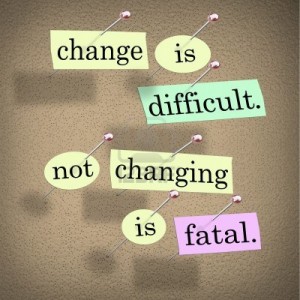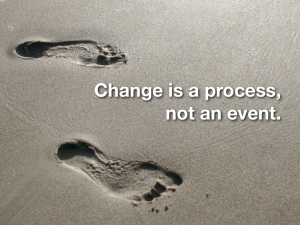Since 2003, I have served on ECU’s Institutional Review Board as a non-scientist. These boards have to have certain types of members  on the committee. Physicians, nurses, scientists, community members, and at least one non-scientist. In fact for a while, I was the only non-scientist, and if I was late, they couldn’t begin until I got there. [Lots of pressure.] Our job as a board is to make sure researchers have considered the risks to the participants and have a plan for minimizing those wisks. Participants have to consent to participate, and in order to do so, they need to be informed. I was originally recruited to discuss how we can make informed consent documents more understandable. After about the year 2005-2006, I began using the term humanist to describe my position on the committee since I understood that my main role on the committee was to advocate on behalf of the human
on the committee. Physicians, nurses, scientists, community members, and at least one non-scientist. In fact for a while, I was the only non-scientist, and if I was late, they couldn’t begin until I got there. [Lots of pressure.] Our job as a board is to make sure researchers have considered the risks to the participants and have a plan for minimizing those wisks. Participants have to consent to participate, and in order to do so, they need to be informed. I was originally recruited to discuss how we can make informed consent documents more understandable. After about the year 2005-2006, I began using the term humanist to describe my position on the committee since I understood that my main role on the committee was to advocate on behalf of the human subjects participants being asked to participate in research studies and clinical trials at ECU. My primary concern then and now are the rights, interests, and welfare of those participants, often actual patients dealing with scary, life-threatening diseases. I don’t often understand all of the science (although after all this time, I do know lots about certain types of diseases and conditions), but I can advocate on behalf of the people participating in these studies.
While I can’t talk about the specific studies we review, the board reviews quite a bit of cancer trials from the cancer center and research related to heart disease, heart devices, high blood pressure, diabetes, and obesity. I continue to serve on this board for a number of reasons. First, it provides me with a way to serve the community and people where I live. I understand this work as community engagement. Second, it provides me with a mutually beneficial opportunity where I can use my own expertise in science, health, medical communication and writing to help educate others about the writing process and health literacy/communication issues. And third, it provides me with lots of examples for my teaching and with a context for understanding of how clinical research leads to new medical practices and treatments.
At some point in my tenure on the board, I realized ECU School of Medicine and Vidant Medical Center had a long history of doing and researching weight-loss surgery.
 In fact, the bariatric program started here in 1978, and one of the bypass surgeries was originally referred to as the Greenville Gastric Bypass. It was some of the bariatric surgery research studies that led me to research these surgeries beginning in 2010 or so even before I was officially diagnosed with pre-diabetes. In doing my research, I realized that I met the criteria and would likely qualify for this surgery if I wanted to go this path. I was also struck by how the terms used to describe these surgeries changes depending on context. They are referred to as weight-loss surgeries, bariatric surgeries, gastric bypass surgeries, metabolic surgery.
In fact, the bariatric program started here in 1978, and one of the bypass surgeries was originally referred to as the Greenville Gastric Bypass. It was some of the bariatric surgery research studies that led me to research these surgeries beginning in 2010 or so even before I was officially diagnosed with pre-diabetes. In doing my research, I realized that I met the criteria and would likely qualify for this surgery if I wanted to go this path. I was also struck by how the terms used to describe these surgeries changes depending on context. They are referred to as weight-loss surgeries, bariatric surgeries, gastric bypass surgeries, metabolic surgery.
And because of my education in rhetorical theory and technical communication, I questioned and was curious about the choice of language used to describe these surgeries and am currently trying to understand the cultural context and kairotic moment for the significant rise in these surgeries over the past decade based on the rhetoric used.r
Just to be clear, I am not criticizing or calling into question those that have had weight loss surgery, and I know it has helped many lose weight and solve other health problems. The research and the arguments for the surgery in reducing or “curing” diabetes are persuasive. However, I am interested though in how the language used to describe them seems to change from weight loss surgeries to more medicalized terms–bariatric, metabolic, and gastric bypass. I am also struck by the persuasiveness of the efficiency in which these surgeries seem to provide some people with fast weight loss. And for those who are overweight and have tried to lose weight over and over again, the holy grail of weight loss is FAST weight loss. 
Researching weight loss surgeries and pre-diabetes helped me make a decision that worked for me. I might have chosen to do it if I had diabetes already, but I knew, from recording my blood sugar and blood pressure for a period of time that exercise kept these numbers exactly where they needed to be, plus, I felt better and it reduced my stress. More recently, I’ve decided to make this work my intellectual and academic research as well. I resisted writing about it before now because it seemed too personal, but now with experiential knowledge of how weight loss and medical/health/fitness rhetorics can work based on my own story, I feel more equipped to investigate these rhetorics in a systematic way. I also realized more recently just how gendered these messages are towards women. (more on this in another post.)
In academic terms, the work I do with the IRB is considered service, often the least valued of the important trinity of academic life (teaching and research being the other two). However, I was taught years ago by the nuns and others as part of my Catholic upbringing that we are to serve others when we are in positions to do so.
And after all these years, I am especially grateful that the knowledge gained as a member of this board helped me change my life.
